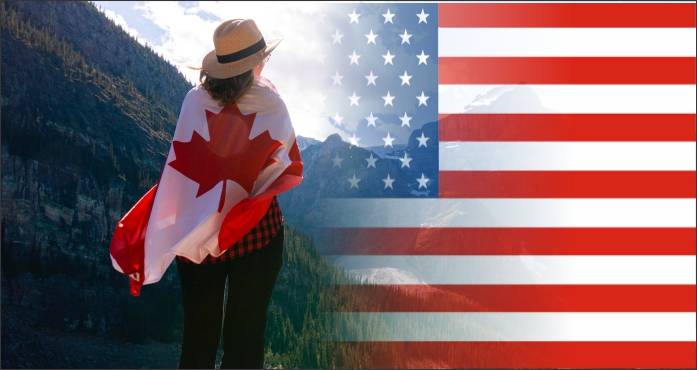Immigration registration law applies for Canadians to stay in the United States for more than 30 days
Under immigration law, Canadian visitors staying for 30 days or more must register with U.S. authorities.
After the trade between the United States and Canada, now important laws and rules are being started in the field of immigration. The U.S. government has decided to strictly enforce an old immigration law for Canadian citizens, under which Canadian visitors who stay for 30 days or more must register with U.S. authorities. This decision came at such a time. Relations between the United States and Canada are getting strained. Two Canadian officials, who spoke on condition of anonymity, confirmed that the U.S. had notified the Canadian government. According to U.S. immigration laws, foreign nationals aged 14 or older, who are not already registered with U.S. authorities, must register and provide fingerprints if they stay in the country for 30 days or more.
However, the law was not being formally enforced on Canadian visitors entering the United States by land. President Donald Trump issued an executive order on the first day of his recent presidency, ordering the law to apply to all unregistered foreign nationals. The order also said that violation of the law would be treated as a “priority for civil and criminal execution”.The new move comes at a time when tensions between the United States and Canada are also being seen on the economic and trade front. Recently, the U.S. government imposed a 25 percent tariff on goods imported from Canada, which was later temporarily suspended for certain items. Then, on Tuesday, President Trump announced that tariffs on Canadian steel and aluminum would be doubled. Prior to this decision, the Ontario government had imposed additional tariffs on U.S. imports.
The U.S. Department of Homeland Security has clarified that green card holders, individuals who are already undergoing deportation, and those who have entered the United States with a visa will be exempt from this registration law. The decision could further strain U.S.-Canada relations, as the Trump administration has seen several tough measures against Canada in the past, including controversial statements about tariff increases and Canada’s inclusion in the United States.




0 Comment